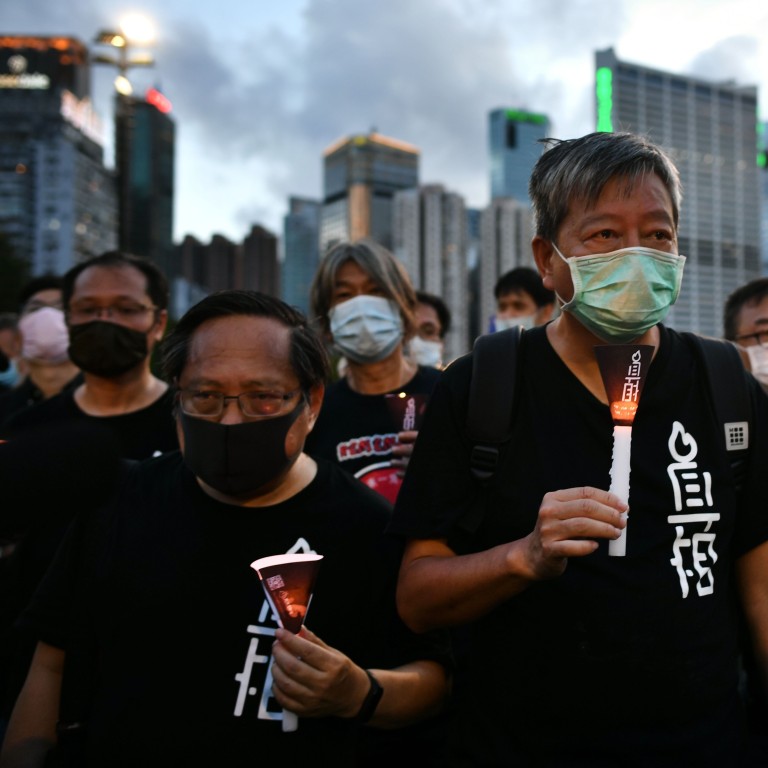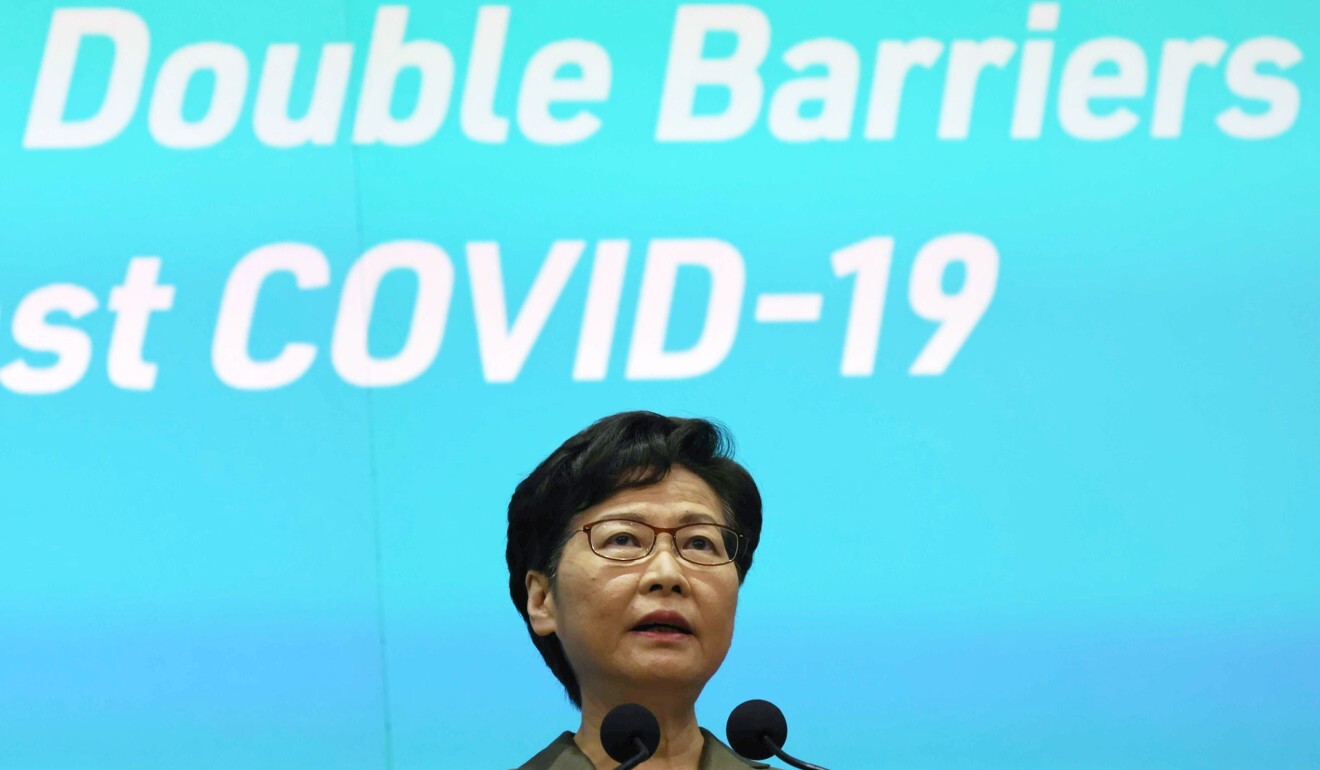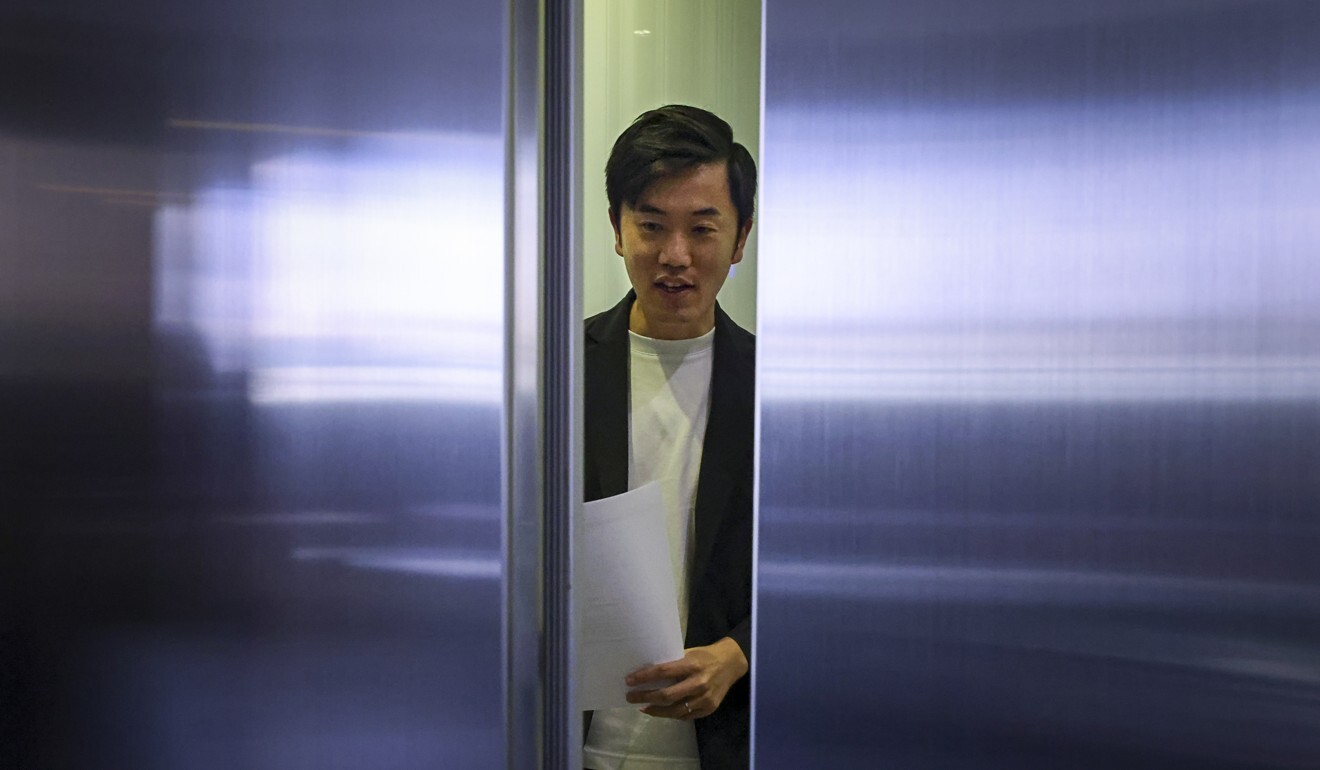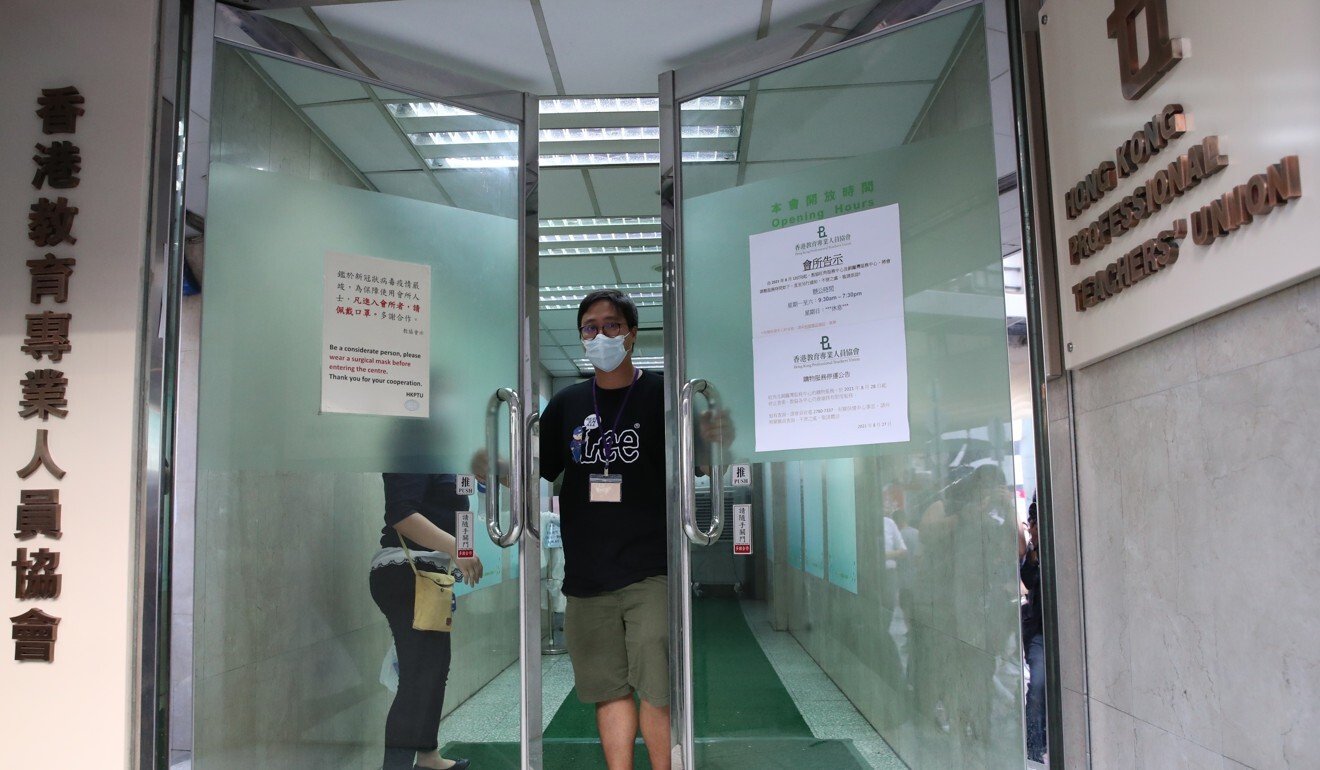
Hong Kong police probe into Tiananmen Square vigil organisers not a ‘crackdown on civil society’, Carrie Lam says
- The investigation into the group, which has announced plans to disband, comes amid a flurry of closures of major opposition-leaning bodies
- Lam also says comfort should be taken that ‘there is only one such case’, when asked about disqualification of Hong Kong’s only remaining opposition lawmaker
Group behind Tiananmen Square vigil under investigation for suspected collusion

Asked about the legal status of the group behind the annual June 4 vigil at a Tuesday press briefing, Lam denied that “a crackdown on civil society” was being conducted.
“We respect civil society, as Hong Kong has a large number of NGOs, think tanks and research agencies who are shouldering their civic responsibility in trying to improve the city’s situation,” she said.
“But where there are associations that exist to undermine Hong Kong’s security, let alone to advocate for independence or collude with external forces to harm Hong Kong and our country, that should not be something we condone.”

Lam said the Beijing-imposed legislation banning subversion, secession, terrorism and collusion with foreign forces was “not a … toothless law” and would be used whenever necessary to safeguard national security.
“I am confident police are using their power properly based on the evidence they [gathered before asking] for the information,” she said, referring to last week’s demand that the alliance turn over details on its membership and financial situation.
Political commentator Chung Kim-wah insisted there was clearly an ongoing crackdown on civil groups, given it was hard for many of them, including the alliance, to avoid connections with overseas pro-democracy bodies. He questioned however if authorities could silence dissent through such actions.
“The movement advocated by the alliance for more than 30 years has become part of the city’s identity. The crackdown on it won’t make people forget June 4,” he said.

In announcing the disqualification last week, Chief Secretary John Lee Ka-chiu, who is also chairman of the seven-member Candidate Eligibility Review Committee, offered no specifics of Cheng’s case.
On Tuesday, Lam was asked how the government could assure political parties over joining coming elections while they were not clear about the red line.
“You should take comfort that there is only one such case,” she said before her weekly meeting with her cabinet.
She added that the decision was made in accordance with the recently established vetting mechanism and that authorities had fulfilled the principle of “natural justice” by requesting Cheng respond to the “negative list” of conduct deemed to prove a breach of his pledge of allegiance to the city and its Basic Law.
“All these processes have been faithfully followed in this case, but we cannot disclose [specific reasons],” she said.

